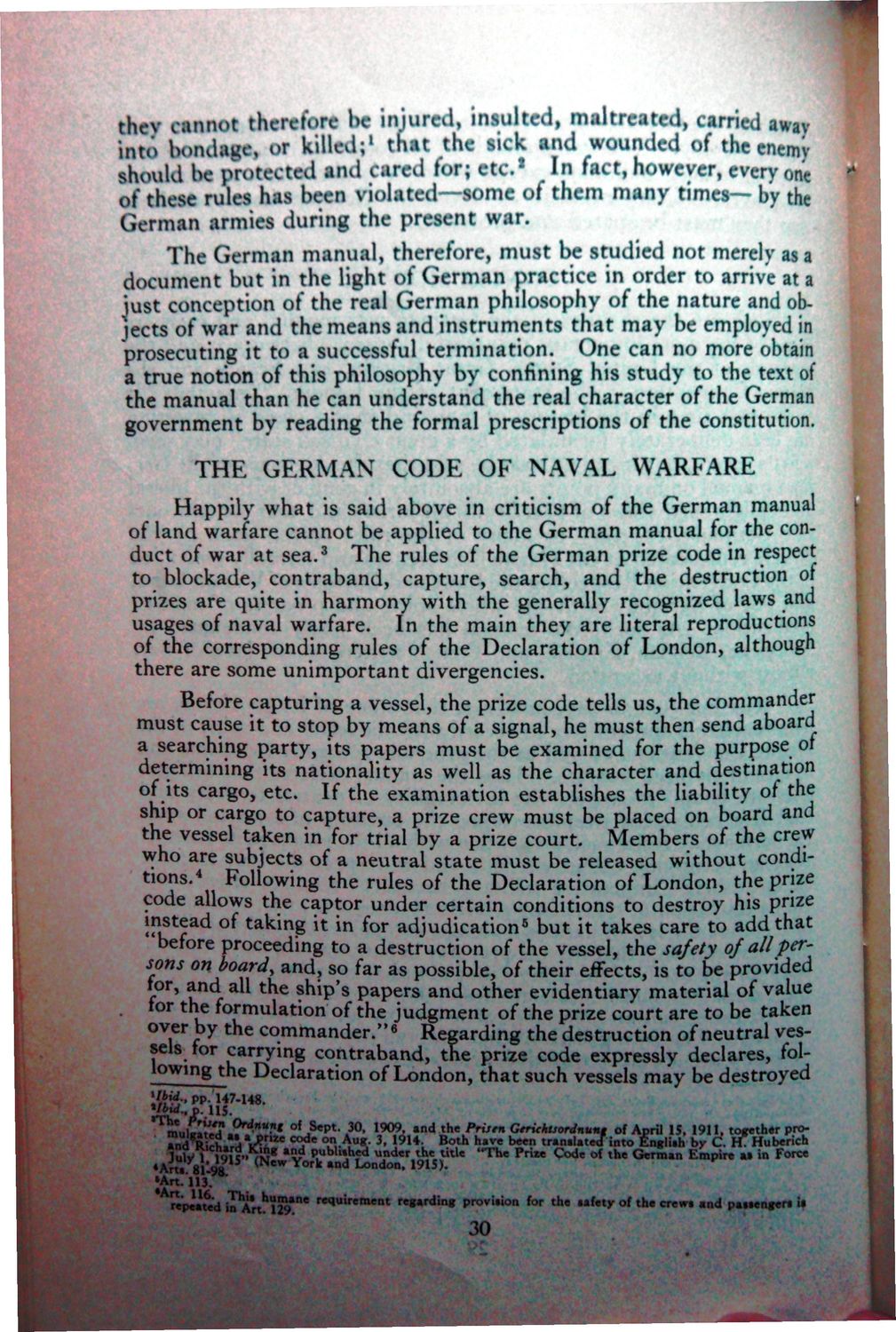| |
| |
Caption: War Publications - WWI Compilation 1923 - Article 14
This is a reduced-resolution page image for fast online browsing.

EXTRACTED TEXT FROM PAGE:
,„,»..*•-.. ^^r ^ — — -— . > everyone r f these rules has been violated—some of them many times— by the German armies during the present war. The German manual, therefore, must be SCUUICU not merely as a DC studied document hut in the light of German practice in order to arrive at a <« v v ^^ ^"^ ^ ^ — f lects of war and the means and instruments that may be employed in prosecuting it to a successful termination. One can no more obtain a true notion of this philosophy by confining his study to the text of the manual than he can understand the real character of the German government by reading the formal prescriptions of the constitution. THE GERMAN CODE OF NAVAL WARFARE Happily what is said above in criticism of the German manual of land warfare cannot be applied to the German manual for the con3 duct of war at sea. The rules of the German prize code in respect to blockade, contraband, capture, search, and the destruction of prizes are quite in harmony with the generally recognized laws and usages of naval warfare. In the main they are literal reproductions of the corresponding rules of the Declaration of " Lond there are some unimportant divergencies. Before capturing a vessel, the prize code tells us, the commander must cause it to stop by means of a signal, he must then send aboard a searching party, its papers must be examined for the purpose of determining its nationality as well as the character and destination of its cargo, etc. If the examination establishes the liability of the ship or cargo to capture, a prize crew must be placed on board and the vessel taken in for trial by a prize court. Members of the crew who are subjects of a neutral state must be released without condi4 tions. FolloWinor I-KA rnlpc r\f fKa HopUrofmn r\f London code 5 instead of taking it in for adjudication but it takes care to add that b e f o r e nrr»r**<»rlir»rr ^ ^ „ uvouuctiun ^ir *tut y oo_i LII^ *afeiy. of— <hpr« A**.**-.,~...:~~ ^ .u« * . L ~ * - / - # . *t nil l e w C ti, rsons on board, and, so far as possible, of their effects, is to be provided tor, and all the ship's papers and other evidentiary material of value tor the formulation of the 6judgment of the prize court are to be taken over by the commander." Regarding the destruction of neutral vessels^ tor carrying contraband, the prize code expressly declares, fol___^ declaration of London, that such vessels may be destroyed \ .{ l id r Jrif-g' PP.'147-148. 11S m u l M S d . ^ " " 1 *J**X'P* - \?09A^nd tht Pruen Grrickisordnun, of April IS, 1911, toge ther pro- *AA^ JArt.'in. $A ^ ^ °* ° ^ h ne r c q u i r c r a e n t f 0mMB EmPirC M ~~ repii!ud ilArt I29* regarding provision for the safety of the creirt «nd passengers 30
| |